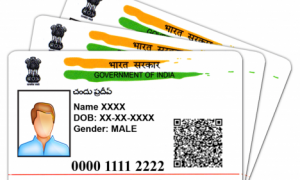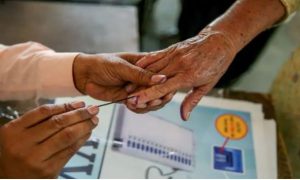The Ayushman Bharat Card, also referred to as the Pradhan Mantri Jan Arogya Yojana (PM-JAY) card, was launched by the Centre in 2018, while the ABHA Health ID Card was launched in 2021
Also Read:- Govt extends free Aadhaar Card update deadline and here is why you should not miss it
The Ayushman Bharat programme, established by the NDA government in accordance with the recommendations of the National Health Policy 2017, was launched to realise the goal of Universal Health Coverage (UHC). Aligned with the Sustainable Development Goals (SDGs), the initiative is guided by the principle of ensuring that no individual is left behind. Last month, after the NDA government took oath for the third time in a row, the eligibility criteria for the Ayushman Bharat Pradhan Mantri Jan Arogya Yojana (AB-PMJAY) was broadened to cover individuals aged 70 years and above.
Initially, the scheme offered income-based coverage of Rs 5 lakh per year to all qualifying families, representing the lowest 40% of the population economically, regardless of age.
Also Read– PM Yasasvi Scholarship: Eligibility, Dates, Apply Online, Steps to Apply, Amount
Following the recent approval from the Cabinet to expand the scheme, individuals aged 70 and older will also receive Rs 5 lakh in annual coverage per family. An estimated 6 crore individuals in this age bracket, hailing from 4.5 crore families, are anticipated to gain from this extension, as per a government announcement.
Ayushman Cards vs Abha Health ID cards
The Ayushman Bharat Card, also referred to as the Pradhan Mantri Jan Arogya Yojana (PM-JAY) card, was launched by the Centre in 2018. The health card aims to provide affordable healthcare services to individuals holding the Ayushman Card. Notably, the Ayushman Health Card offers financial security for healthcare expenses to its holders.
Read More: How Data Security is reshaping Digital Property Management
The Ayushman health card provides beneficiaries with access to healthcare services worth Rs 5,00,000 per year at both public and private hospitals nationwide. It is crucial to understand that the Ayushman health card covers pre-existing conditions as well.
Under the expanded Ayushman Bharat programme for senior citizens above the age of 70 years, eligible recipients will receive a new PM-JAY card.
Top features
> Unlimited family size without any limitations
> Financial coverage for hospitalisation expenses up to Rs 5 lakhs per year per family
> All providers are pre-licensed for secondary and tertiary care procedures, regardless of co-morbidity conditions
> Cashless treatment available at both public and private empanelled hospitals nationwide
> No restrictions for individuals to become members of Ayushman Bharat Yojana after receiving the ABHA CARD
> Access to free benefits under Ayushman Yojana
> National portability at all public and private empanelled hospitals across India
> Families do not need to be listed in the Socio-Economic Caste Situation (SECC) database
> Coverage includes 3 days of pre-hospitalisation and 15 days of post-hospitalisation expenses.
Read More: Know how to apply for a PAN card online in just a few steps
Abha Health ID cards
The ABHA Health ID Card was introduced in 2021 by the Centre. This card features a unique digital health identification number that includes a person’s complete health information. Of particular note, the aim of this health ID card is to establish a comprehensive digital health record for every Indian citizen.
Serving as a digital health account accessible to people nationwide, the ABHA Card allows for online access to all medical requirements and treatments when needed. Additionally, this health card promotes vigilance among medical service providers across the country with regard to your health status.
Read More:- Fixed Deposit: Top 30 banks offering highest interest rates on 1 year FDs
The ABHA Number is a 14-digit identifier that uniquely distinguishes you as a participant within India’s digital healthcare network. It serves as a trusted and secure identity recognised by healthcare providers nationwide. Easily register for Personal Health Records (PHR) applications, such as the ABDM ABHA application, for effortless health data sharing.
All citizens of the country will be provided with a unique digital health ID and Health Dossier number, allowing for the creation of their digital health record.
The issuing of these IDs to every Indian citizen aims to enhance efficiency and accountability within the healthcare system.
This digital health ID will be accessible to all members of the family, aiding healthcare providers in delivering evidence-based treatment.
Real-time health data will be accessible to authorized parties as needed, improving overall healthcare coordination.
Furthermore, the digital health ID will be integrated with web- and mobile-based telemedicine facilities to enable remote healthcare services.
Aslo Read– IIFL Finance Gold Mela: Get Gold loans at 0.99% interest rate pm, zero processing fees until…
Recently, Google in a blog post said that the ABHA ID cards will be available on Google Wallet starting next year (2025).
Difference between Abha Health ID cards and Ayushman Cards
1. Primary Purpose: The focus of the Ayushman Bharat Card is to offer cost-effective healthcare services during times of need and provide financial protection during critical and emergency situations. The ABHA Card serves as a digital health identification number.
2. Coverage: The Ayushman Card covers hospitalisation expenses for a specified duration, while the ABHA Card does not provide coverage for expenses but rather maintains and updates health information in a digital format.
3. Eligibility: The Ayushman Card is designed for individuals belonging to the Economically Weaker Section (EWS) in the country. On the other hand, the ABHA Card is available to all cardholders regardless of their economic status.
4. Data Storage: The Ayushman Card stores and manages healthcare data using healthcare terminology related to an individual’s medical history. Conversely, the Ayushman Bharat Card does not have data functionality similar to the Ayushman Card.
To apply for an ABHA ID card, follow these steps:
Visit the official website or download the ABHA mobile app.
Register on the website or app.
Provide basic personal information and undergo Aadhaar authentication.
Once your account is created, you will receive a unique ABHA number, serving as your digital health ID.





































